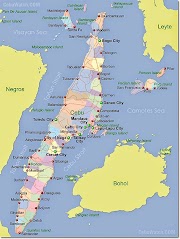Recent Developments in the Israel-Iran Conflict
Israel carries airstrike and missile strike inside Iran after Iran fired hundreds of missiles last weekend.
In recent months, the longstanding tensions between Israel and Iran have once again flared up, raising concerns about the possibility of a full-blown military conflict in the volatile Middle East. While direct confrontation between the two countries has been relatively rare, both have engaged in a complex and often clandestine struggle for regional dominance, with the potential for escalation always looming.
The most recent escalation in tensions between Israel and Iran can be traced back to a series of events that unfolded over the past year. One significant development was the assassination of Iran's top nuclear scientist, Mohsen Fakhrizadeh. Iran blamed Israel for the attack and vowed revenge, further straining relations between the two adversaries.
Another flashpoint occurred with the ongoing negotiations surrounding Iran's nuclear program. The United States, under the Biden administration, sought to revive the Joint Comprehensive Plan of Action (JCPOA), commonly known as the Iran nuclear deal, which aimed to curb Iran's nuclear capabilities in exchange for sanctions relief. However, Israel vehemently opposed the deal, arguing that it did not go far enough in preventing Iran from obtaining nuclear weapons.
Amidst these tensions, there have been several incidents that have heightened fears of a direct military confrontation between Israel and Iran.
Additionally, there have been reports of maritime incidents involving Israeli and Iranian vessels in the Red Sea and the Persian Gulf, further raising the specter of a naval conflict between the two countries.
The proxy warfare between Israel and Iran has also intensified in recent months, with both sides supporting opposing factions in regional conflicts such as the Syrian civil war and the ongoing conflict between Israel and Hamas in Gaza. These proxy conflicts serve as a dangerous theater for the broader struggle for influence between Israel and Iran, with the potential to escalate into direct confrontation.
Despite the escalating tensions, both Israel and Iran have thus far avoided all-out war, perhaps recognizing the catastrophic consequences that such a conflict would entail. However, the situation remains highly volatile, with the potential for miscalculation or unintended escalation ever-present.
In light of these developments, the international community, particularly regional stakeholders and the United Nations, faces the urgent task of de-escalating tensions and fostering dialogue between Israel and Iran. Failure to do so could have devastating consequences not only for the two countries involved but for the entire Middle East region and beyond. Only through diplomatic engagement and constructive dialogue can the cycle of violence and instability be broken, paving the way for a more peaceful and secure future for all parties involved.
#Iran #Israel #WarConflict

.jpeg)
.jpeg)








0 Comments